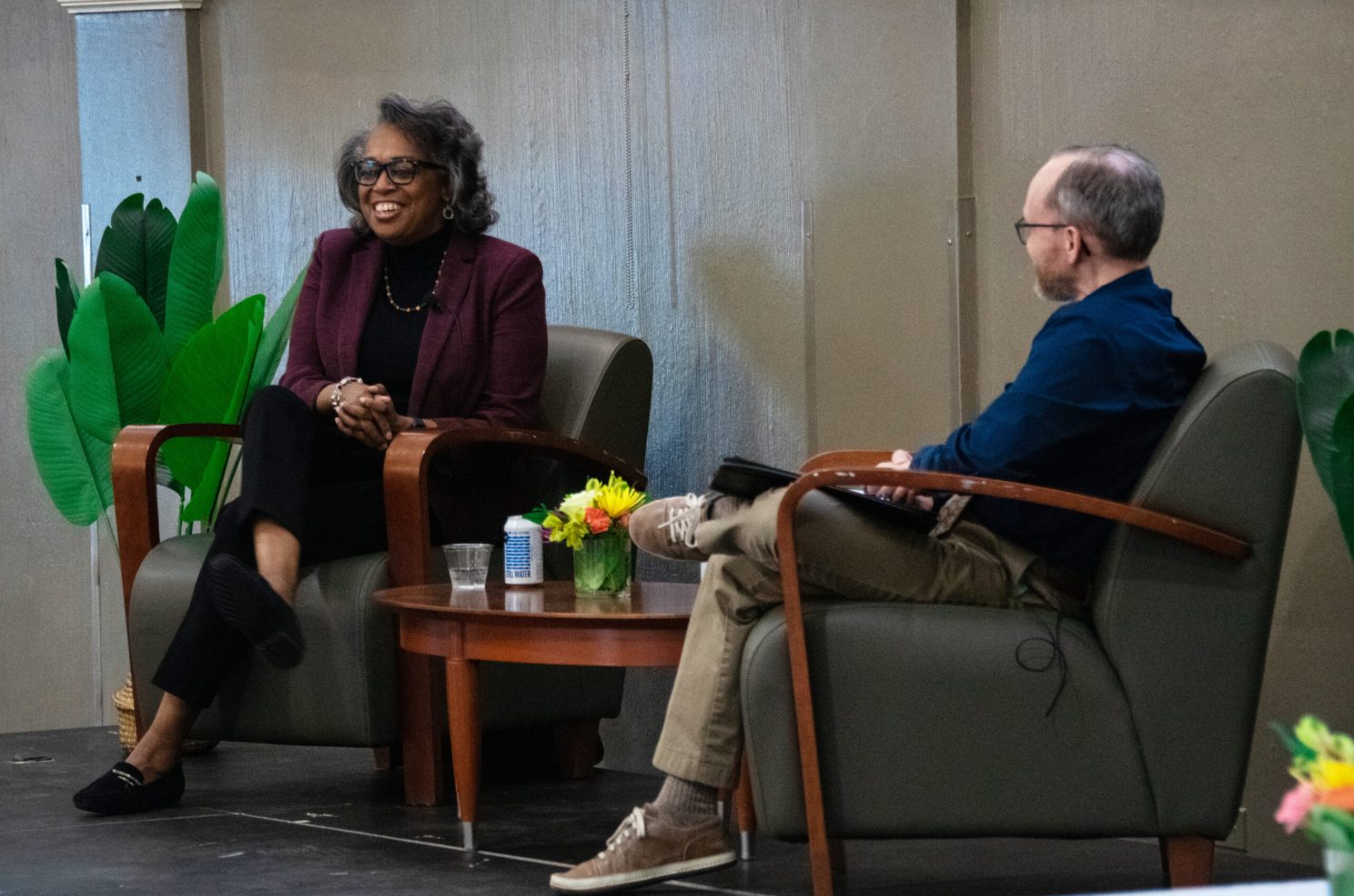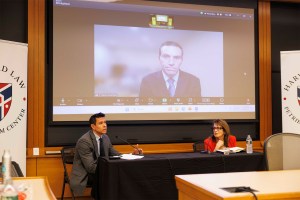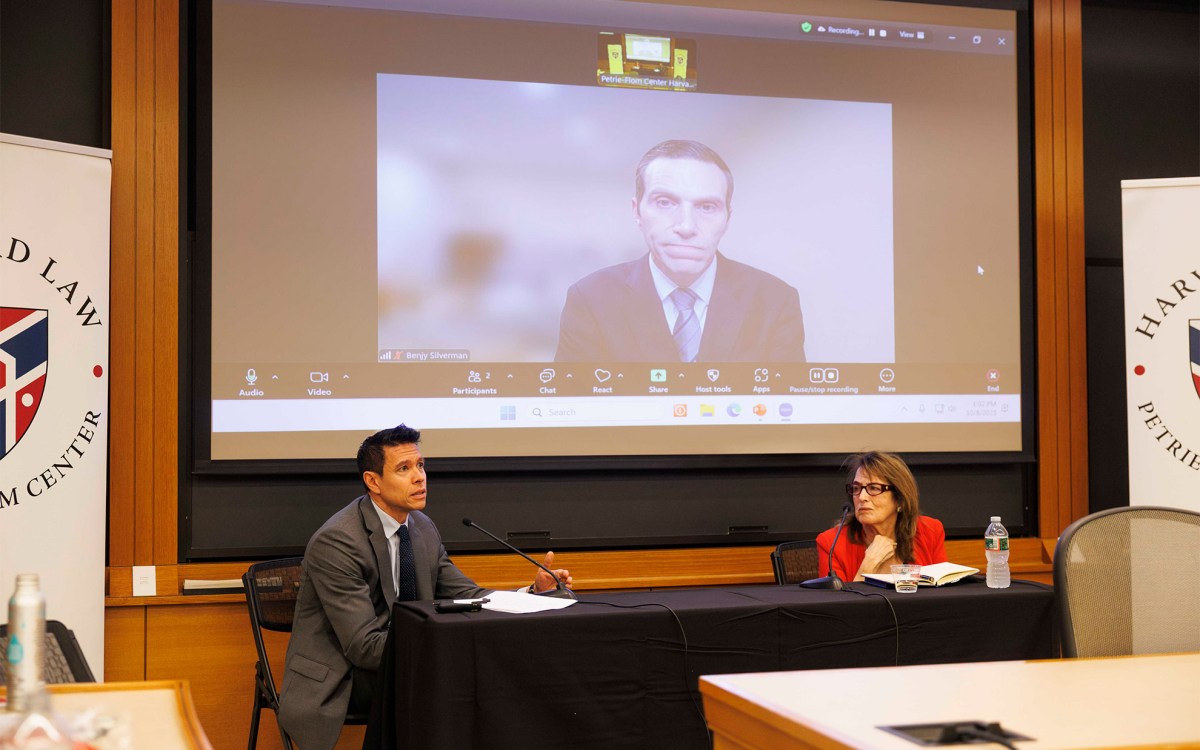Student affairs: Looking back, looking forward

Associate Provost for Student Affairs Robin Glover leads a lunchtime discussion with Chris Lewis, director of graduate programs at the University of Michigan-Flint, at Sunday’s Administrators in Graduate and Professional Student Services preconference. Photo credit: Ricardo Lopez
Each year, Student Affairs Administrators in Higher Education (NASPA) holds its annual conference to bring together student affairs professionals from around the country. Ahead of this year’s conference, which was held in Boston from April 1-5, Harvard was chosen to host the Administrators in Graduate and Professional Student Services (AGAPSS) Preconference. Sunday’s preconference welcomed student affairs staff from around Harvard as well as more than 50 other higher education institutions to campus for a day of networking and learning.
Harvard was the perfect place to host, said Jackie Yun, executive director of the GSAS Student Center and preconference chair, as it is the birthplace of the student affairs profession. In 1890, President Charles Eliot appointed Professor Le Baron Russell Briggs the first student-facing dean, the “Dean of Men.” In his work to teach “young men to be responsible, honorable and conscious of the needs of others,” Briggs became a beloved resource and mentor for students across campus. Yun noted his contributions to laying the groundwork for student affairs work —o verseeing academic advising, counseling for personal issues, and disciplinary matters—and his pioneering spirit in launching this essential division of the modern university.
These days, student affairs professionals work on campuses worldwide to encourage an understanding of and respect for diversity, foster individual growth both inside and beyond the classroom, and support students in their personal, academic, and professional development. Harvard is home to many student-facing offices at the Schools, as well as the central Office of the Associate Provost for Student Affairs, which leads cross-School well-being and student affairs initiatives and connects students with resources across the University.
Said Robin Glover, associate provost for student affairs, “Student affairs is such an important part of a student’s educational journey, especially as it relates to their personal development outside of the classroom. Per NASPA, the student affairs profession has grown to include 39 functional areas, so it extends far beyond supporting students in reaching their academic potential. The overall well-being of students—including mental health; diversity, equity, and inclusion; and campus safety — has become a top priority for student affairs professionals.”
Sunday’s preconference, titled “Supporting Graduate & Professional Student Success,” featured a keynote opening from Yun and a lunchtime conversation led by Glover. Participants had the choice of attending breakout sessions on topics such as supporting students from diverse backgrounds (such as the BIPOC, LGBTQIA+, and international communities, among others), advising and professional development, and well-being. There were networking groups for those who work with students in specific disciplines, as well as a larger “Bring, Brag, Borrow” session that offered attendees a chance to share innovative programs and service delivery ideas. “The conference provided an opportunity to discuss the needs and expectations of graduate students today, and the responsibilities that institutions and professionals have for fostering environments that support holistic development and well-being,” said Yun.




